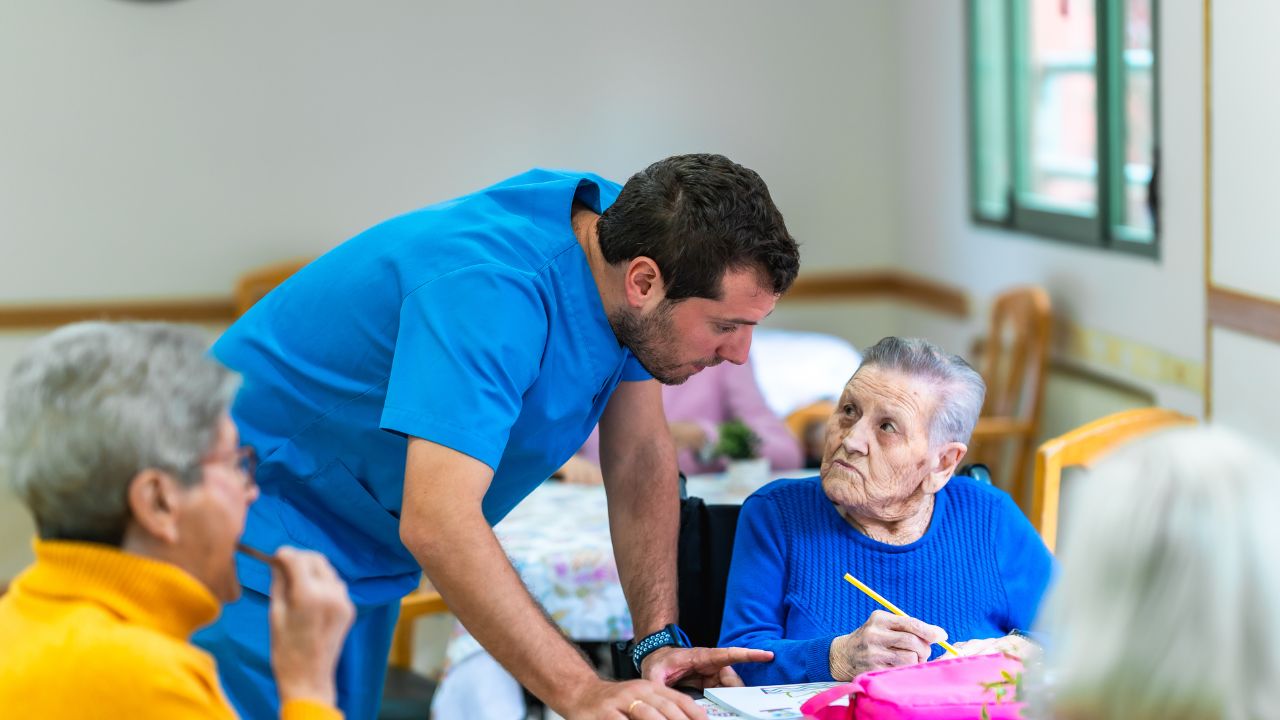The reality is that delegation plays an important component in any work environment that strives for cohesion among team members. Nursing delegation is no exception. This tactic was first coined by the American Nurses Association (ANA) and the National Council of State Boards of Nursing (NCSBN) as “an essential nursing skill.” According to a joint statement from 2019, nursing delegation:
“reflects an effort to standardize the nursing delegation process based on research findings and evidence in the literature and applies to all levels of nursing licensure.”
But what exactly is nursing delegation? Nursing delegation is a managerial tactic that involves delegating (or transferring) specific responsibilities to suitable health personnel while assuming accountability for patient outcomes. According to a study, the ANA and NCSBN state that nursing delegation is “the process for a nurse to direct another person to perform nursing tasks and activities.”
Nursing delegation can be a difficult concept to grasp at first. However, once understood and implemented, nursing delegation can lead to dramatic increases in employee morale and significantly improved patient outcomes. Here’s how you and or your nursing team can get started:
What are delegations?
On its own, delegation is the process of entrusting work and responsibilities to another person. In nursing, delegation is a strategic and clever tactic that helps redistribute tasks to other healthcare members. Since most workers feel their skills are being over-utilized in healthcare settings, nursing delegation can be an effective tool for lessening everyone’s workload. Additionally, nursing delegation, when implemented appropriately, can lead to a safe and efficient patient care experience.
Why is scope of practice important in nursing delegation?
In the majority of cases, delegation is based on the licensure hierarchy. While nursing delegation applies to all levels of nursing licensure, certain guidelines allow a qualified health professional to transfer a low-risk and routine task to another team member with a narrower scope of practice. According to the ANA and NCBN, the transfer of responsibility for the care of a patient between licensed healthcare providers may look like:
- Advanced practice registered nurses (APRNs) when delegating tasks to RNs, licensed practical/vocational nurses (LPN/LVNs), and assistive personnel (AP)
- Registered Nurses (RNs), when delegating to LPN/LVNs and AP
- LPNs/LVNs (as allowed by their state/jurisdiction) when delegating to AP
**Keep in mind that delegation laws can vary from state to state. It is a licensed nurse's responsibility to understand what is allowed and/or permitted in their jurisdiction and be educated on the legal ramifications of inappropriate delegation.
What’s the role of CNAs and UAPs in nursing delegation?
Certified nursing assistants (CNAs) are generally considered unlicensed personnel, and RNs or higher licensure personnel should exercise discretion when delegating nursing duties to them. This is because there can be serious legal implications if a registered nurse delegates a task that is outside of a CNA’s scope of practice.
For example, neither a CNA nor an unlicensed assistive personnel (UAP) should be delegated to make a nursing diagnosis, as this falls under the scope of a registered nurse’s abilities.
What are some examples of appropriate nursing delegation?
Two roles are assumed in nursing delegation: the delegator and the delegatee.
The delegator assigns the task, and the delegatee receives it. One key theme licensed nurses should keep in mind when delegating is that delegated nursing tasks should never supersede the less-qualified delegatee’s skill set.
Some examples of appropriate nursing delegation can look like the following in practice:
- An APRN or RN delegates a LPN or LVN to administer certain medications.
- An RN delegates a CNA to collect a urine sample from a patient.
- An RN delegates a UAP to perform a finger stick blood glucose monitoring.
- An RN delegates certain nursing interventions (such as wound care, dressing changes, and IV medication administration) to another RN with this area of training.
What are the five rights of nursing delegation?
When used correctly, the 5 rights of delegation in nursing, or the 5 R's of delegation, effectively help nurses manage their time and deliver care to patients safely and efficiently. These 5 delegation rights serve as a guide for nurses to understand when it is appropriate and necessary to transfer responsibility of a task to another healthcare personnel.
The following are the 5 rights of delegation in nursing:
1. Right task
When delegating a task to another healthcare personnel, the delegator should make sure the task does not go beyond the delegatee’s skillset or scope of practice. Likewise, the licensed nurse should consider what tasks are legally compliant with their organization's policies. Generally, “Right Tasks” are routine duties that are noninvasive, repetitive, and carry minimal risk when passed over to healthcare team members. More often than not, this transfer of tasks from one healthcare team member to another is only intended for a single and stable patient.
2. Right circumstance
Before delegating a task, a nurse should consider the patient’s condition, as well as the delegatee’s access to staff resources, supervision, and competency to handle the situation. If a patient’s condition changes at any point, the delegatee is required to report these changes to a licensed nurse, who must then reassess the situation.
3. Right person
When delegating specific tasks, “the right person” must be an appropriate team member to perform the tasks. This means the delegator should choose a delegatee who possesses the right abilities, skills, and scope of practice, to take over the task.
4. Right direction and communication
The nurse delegator is required to provide clear instructions for the delegatee. Similarly, all delegations should be clearly communicated to other licensed personnel or UAPs until they understand precisely what to do and when to do it. The delegator should communicate to the delegatee that they can not modify a task unless the delegator authorizes it and they must report back to the delegator when the task is completed.
A good formula to consider when performing this particular nursing delegation is the four “Cs” of communication: providing clear, concise, complete, and correct information when delegating tasks. This can ensure smooth, safe, and effective communication between delegators and delegatees in healthcare roles.
5. Right supervision and evaluation
The delegating nurse is in charge of supervising and monitoring a delegated activity. This means that once the task is complete, the licensed nurse follows up with the delegatee to ensure the completion of the activity. The nurse delegator is also in charge of evaluating patient outcomes. At any point, if the delegating nurse feels the need to intervene in the delegated task, they should do so without hesitation.
What are the benefits of the 5 rights to delegation in nursing?
Implementing the five rights of delegation in nursing has many benefits. Some of these benefits include time-management advantages, the potential to enhance patient outcomes and improvements to overall organizational efficiency. Other potential benefits of delegation in nursing include:
- Reduced workload, which could lead to decreased burnout among staff
- Better staff morale and job satisfaction
- Increased opportunities for inclusion and professional development
- Fostered trust among healthcare workers
As long as a nurse understands how to delegate effectively, there will be endless opportunities to improve patient care and reap the benefits of this approach.
Smart nurses know how to delegate
Nursing is a challenging but rewarding role. As a nurse, you are expected to make quick decisions on your feet to ensure optimal patient care.
But here’s the thing: you can’t do it all, and that’s okay. Smart nurses know when and how to delegate. Plus, delegation in nursing was designed to help nurses go from feeling overwhelmed to empowered by helping to distribute their workload strategically. Ultimately, nursing delegation can be a powerful tool to improve patient care, increase staff morale, and save patient lives.
Want to improve a patient’s life? Sign up with Nursa today to pick up a per diem shift at a local healthcare facility near you.
Sources:








.jpg)





